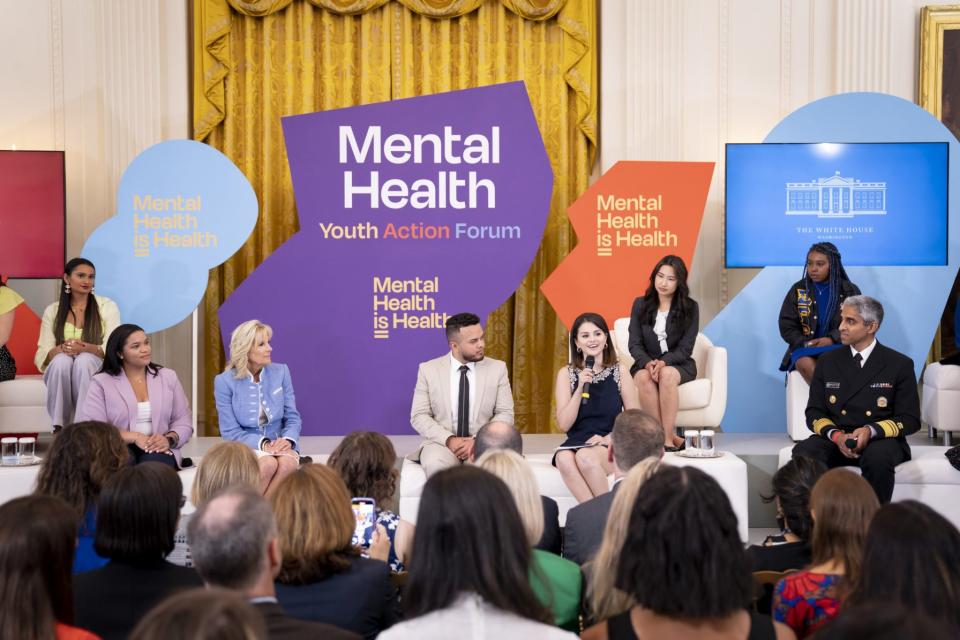Why Pinterest, MTV, and Showtime are teaming up to fund cultural approaches to mental health care

In Term Sheet, we typically report on investments in companies, whether it be through venture capital, private equity, or hedge funds. But today’s newsletter covers another kind of funding with an entirely different value proposition—investments in communities, and the mental health of the young people living in them.
One-third of young adults in the U.S. aged 18 to 25 live with a mental illness, according to a 2022 report from the U.S. government agency that oversees mental health treatment services. One in ten young people in the same age group experience a serious mental illness, which means it substantially interferes with their daily life, the data showed.
While discussions around mental health have entered the mainstream in recent years, minority communities face additional barriers to getting access to proper care. Researchers have found that the stigma around mental health is worse for ethnic minorities, for example. Black individuals with mental health or substance use illnesses endure longer wait times for appointments than white patients, and they are at a higher risk for financial distress when they have depression, studies have found. There is also a disproportionately low number of psychology workers that come from ethnic minorities compared to the makeup of the U.S. population.
Social media platform Pinterest, alongside Paramount-owned entertainment networks Showtime and MTV Entertainment Group, have committed $1 million towards funding community organizations working on culture-based mental health initiatives for young people, the companies exclusively told Fortune.
What exactly is a culture-based mental health practice? The definition is loose, but it can include food, dance, music, meditation, yoga, comedy, and other activities rooted in cultural traditions that promote healing. The fund, called the Hidden Healers Fund, also intends to support groups that are bridging the gap of accessibility in mental health care for minority communities, such as the AAKOMA Project, a nonprofit that offers free therapy sessions to members of marginalized groups.
“This really felt like something new and different that merited our investment,” Erika Soto Lamb, MTV’s vice president of social impact strategy, told Fortune. “Even if you can access mental health care, the disparity of therapists coming from communities of color makes it so it’s difficult to find care from somebody with lived experience.”
Pinterest’s chief content officer Malik Ducard pointed to his own industry as a reason mental health care is in demand. In recent years, the negative effects of social media on mental health have become clearer, with the Surgeon General issuing a warning to social media companies on the matter last year. Meanwhile, Pinterest supports emotional wellbeing initiatives and works to create a healthier product for young people, Ducard said in an emailed statement.
The fund wasn’t born from nothing. In 2022, MTV held a mental health-focused forum at the White House. In attendance were 30 health leaders under the age of 30, who pitched ideas on what resources young people need to a group of media companies, nonprofits, and officials from the Biden-Harris Administration. Four of those participants—Mahmoud Khedr, Ayanna Kelly, Maddox Guerilla, and Kheira Bekkadja—proposed diverse healing practices and called themselves the Hidden Healers.
“We always went in with a commitment that we were going to do more with at least one of the ideas,” MTV’s Soto Lamb said. “This one stood out to us from the start.”
Within days of the event, MTV partnered with the Hidden Healers group. Together, they created an online resource page for members of underrepresented communities. The new fund builds off this previous work with the original group as its namesake.
While the $1 million fund is a step in the right direction, it is still just a drop in the bucket compared to the deep pockets of these media companies and the scope of the problem. Paramount generated $30 billion in revenue last year, and Pinterest conjured $3 billion.
Soto Lamb didn’t disclose the number of organizations the Hidden Healers Fund intends to invest in or whether the media companies will continue infusing money into the project past its inaugural year. But she did say, “When we do something that works, we keep doing it.”
With young people as the future of business (and not to mention politics, academia, science, journalism, and everything else), perhaps taking a stake in improving mental health is the only investment that matters.
Rachyl Jones
Twitter: @RachylJones
Email: rachyl.jones@fortune.com
Submit a deal for the Term Sheet newsletter here.
Joe Abrams curated the deals section of today's newsletter.
This story was originally featured on Fortune.com

 Yahoo Finance
Yahoo Finance 